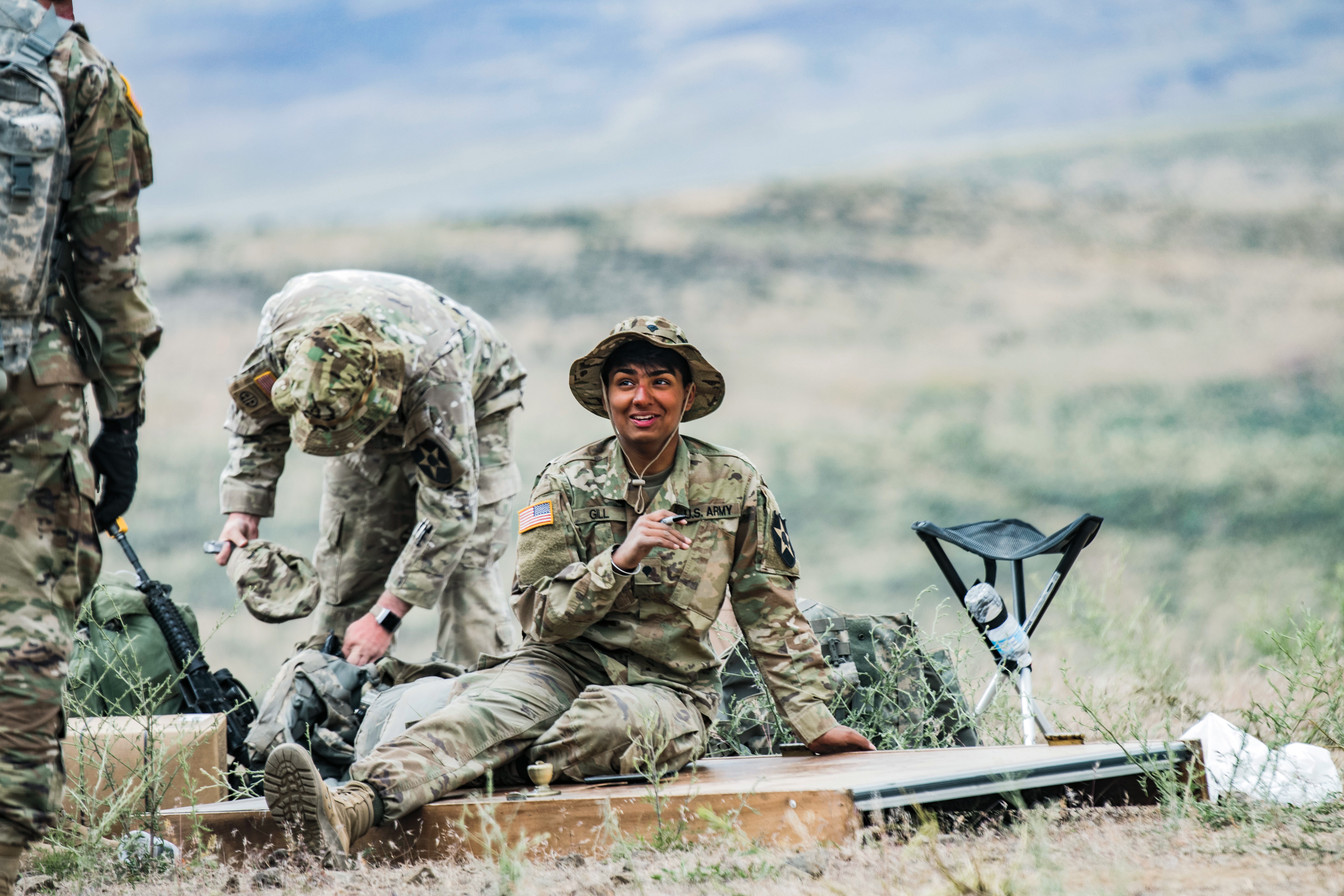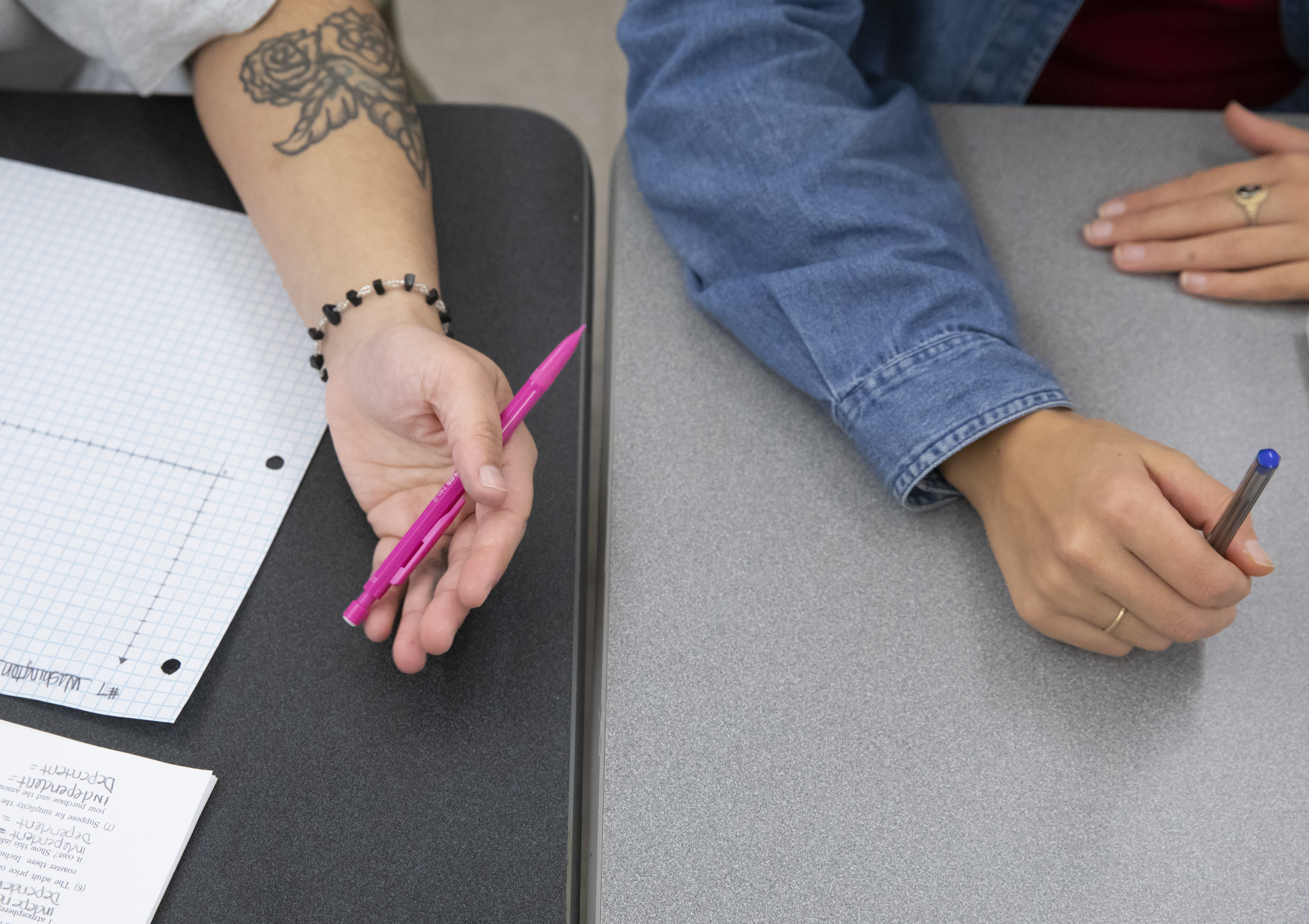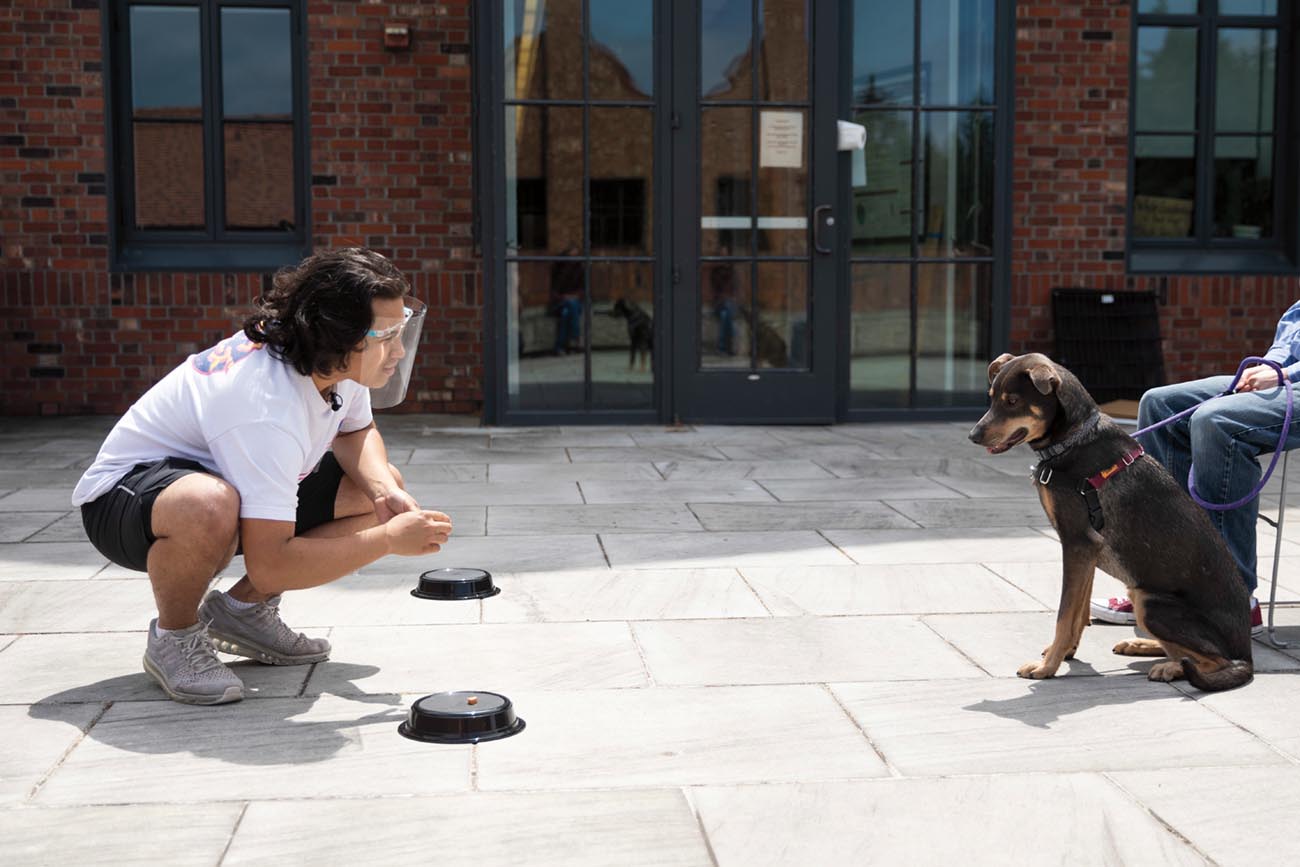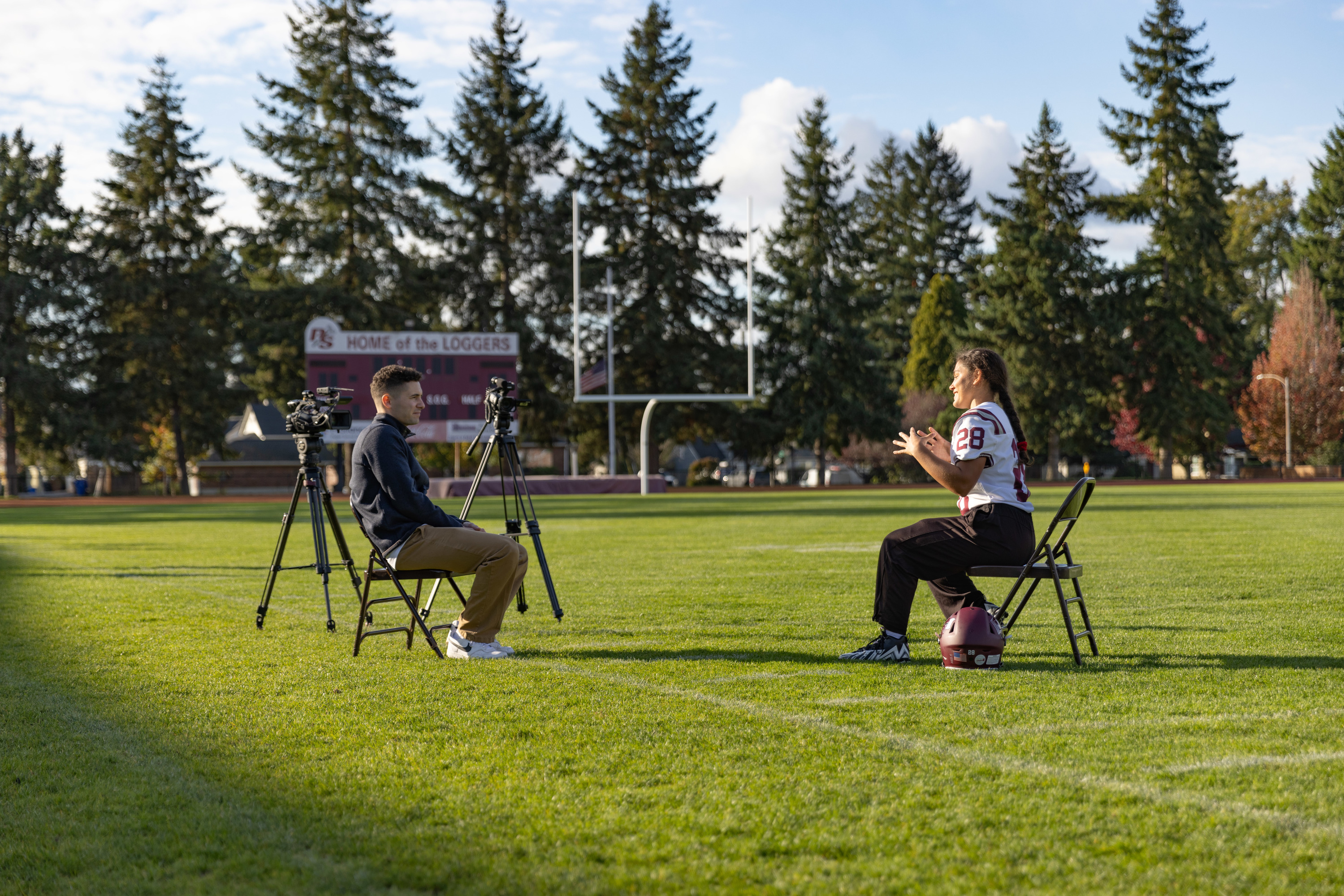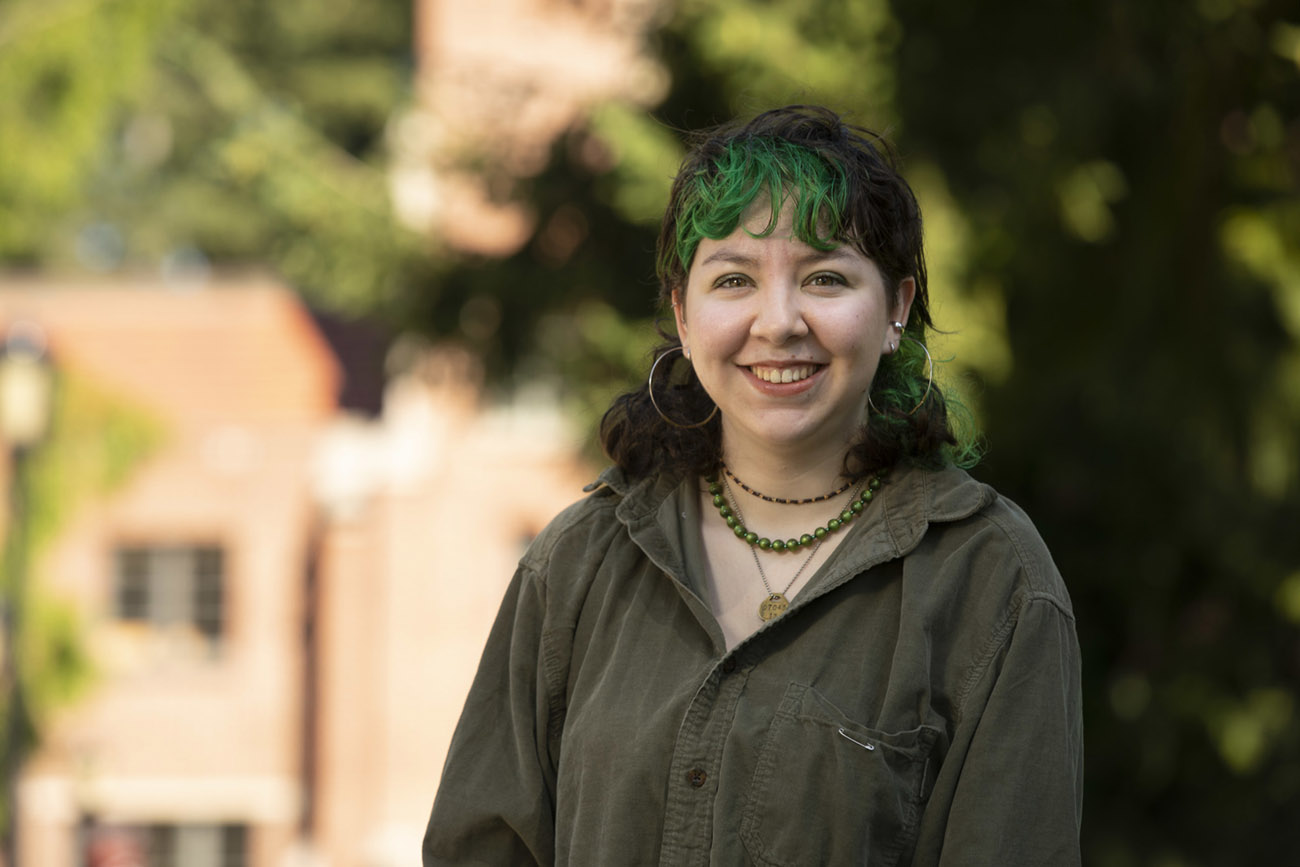Arshia Gill ’21 bridges campus life, Sikh, culture, and her work with the National Guard
Once a month, Arshia Gill ’21 leaves her residence hall around 3 a.m., Thursday, and heads about two and a half hours east of campus to the Yakima Training Center for the weekend. It’s not a typical college road trip, but then, Arshia isn’t typical.
When she was 8 years old, she and her mother moved from the Punjab state of India to Bellevue, Wash., with little more than a suitcase between them. After graduating from high school, when most of her peers were registering for college classes, she was at Fort Leonard Wood, Mo., finishing basic training. Now, as a Puget Sound sophomore, she combines life as a student, a soldier, and a role model.
The weekends in Yakima are part of Arshia’s commitment to the Washington Army National Guard. As a specialist with the 898th Brigade Engineer Battalion, she’s learning to aid and protect front-line soldiers navigating dangerous terrain.
“In modern warfare, combat engineers are typically route clearers,” Arshia explains. “If the infantry needs help getting across a specific obstacle, we’re there to clear the route. We do mobility and countermobility, and we focus on survivability.” That means that much of the time, she and her squad members would be in tanks, clearing IEDs from the road and making sure houses and other structures are safe to enter.
As part of her training, Arshia will go through a series of drills and tests, culminating in a monthlong summer exercise in what she calls “a pretend war zone,” where she and her squad will run simulations of real-world wartime situations. Upon completion, she’ll be deployable for the next year, should her battalion be called into service.
Meanwhile, she’s blazing a path for other women in the U.S. military. Her position as a combat engineer is one that only recently became available to her, when the Department of Defense opened all military occupational specialties to women in 2015.
On campus, she faces a different set of challenges, like juggling a full academic course load with the demands of a military schedule. “I usually tell my professors a week in advance of when I’m going to leave, so, if I need to take a quiz or a test beforehand, I can,” Arshia says. Unfortunately, that doesn’t always work out. One weekend last spring, she found herself cramming for a test in the middle of a training exercise. “You can ask the people I work with. I was sitting in my tank with my math textbook in my hands.”
Telling professors why you’ll miss a quiz is one thing. Telling your friends you’re spending the weekend defusing bombs is another. “I kept it under wraps for a while, mostly because I didn’t know how [students here] would handle someone who’s in the guard,” Arshia says. But, as she has grown more comfortable both on campus and in her battalion, she’s come to welcome conversations with classmates curious about her “double life.”
Talking about her National Guard experiences has helped her find common ground with her Sikh family members back in India, too. In the Sikh religion, the term “saint-soldier” describes a deeply held value or way of life that embodies standing up against injustice and protecting the vulnerable. It speaks to a cultural predilection for service, which can take many forms. In Arshia’s family, there is a long tradition of military service, but as the first woman in her family to follow that path, she is also testing some boundaries. “My grandma is still having a hard time with me having short hair,” she says, “but what’s really cool is my grandpa. I can talk to him about [the guard], and even though he was part of the Indian Air Force, he totally understands what I mean.”
After completing her bachelor’s degree, Arshia plans to enter a doctoral program and pursue a career as an occupational therapist. Shadowing an OT while recovering from a soccer injury in high school piqued her interest in the field, and seeing how military life and active duty can affect soldiers’ bodies clinched it. Her long-term goal is to work with veterans, helping them recover from injury and transition back into civilian life.
In her battalion, Arshia is known as a fast and willing learner, a take-charge leader, and a warrior protective of her fellow soldiers. She recently became the first woman in combat arms in Washington state to receive an Army Achievement Medal, and her squad leaders are already talking to her about making sergeant—maybe as soon as this year.
“My experience and where it’s brought me, to be able to say that, yes, I am that 1 percent in the nation that serves—I’m proud of that,” Arshia says. “It’s meshed between my National Guard culture and my home culture and my American culture, and it’s created this weird me.”
